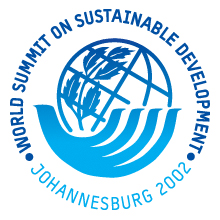Resilient Communities & Cities Partnership Program
Description
Description
The goal of the Resilient Communities & Cities Partnership Program is to support the development of greater resilience in the institutions, infrastructure, and social and economic life of cities and towns worldwide through urban management and participatory governance. A Resilient Community is a city, town or neighbourhood that reduces its vulnerability to dramatic change or extreme events and responds creatively to economic, social and environmental change in order to increase its long-term sustainability.
Guided by the formula "Sustainability=Resilience/Risk," the program seeks to develop a methodology for local resilience management, which will increase the resilience of a city or community to a range of shocks, crises, and disasters including environmental emergencies, industrial accidents, outbreaks of epidemics, economic shocks, natural disasters, terrorist attacks, and social conflict. In the Resilient Communities & Cities Partnership Program, the concept of resilience encompasses both the resilience of cities (the natural and built environment, including infrastructure) as well as the resilience of communities (social and political structures).
The program will focus on introducing policies, tools and methods developed in the disaster management community into the established worldwide movement for sustainable communities, thereby linking preventative disaster management know-how with established local methods for participatory sustainable development planning (also known as Local Agenda 21 planning).
The Partnership Program is composed of eight elements: partnership program management and capacity building; documentation and promotion of good policies and best practices; inventory and review of mechanisms for local resilience management; recruitment of pilot cities; methodology, modeling and system development; pilot projects in six municipalities; project learning and experience; and project documentation and products.
Guided by the formula "Sustainability=Resilience/Risk," the program seeks to develop a methodology for local resilience management, which will increase the resilience of a city or community to a range of shocks, crises, and disasters including environmental emergencies, industrial accidents, outbreaks of epidemics, economic shocks, natural disasters, terrorist attacks, and social conflict. In the Resilient Communities & Cities Partnership Program, the concept of resilience encompasses both the resilience of cities (the natural and built environment, including infrastructure) as well as the resilience of communities (social and political structures).
The program will focus on introducing policies, tools and methods developed in the disaster management community into the established worldwide movement for sustainable communities, thereby linking preventative disaster management know-how with established local methods for participatory sustainable development planning (also known as Local Agenda 21 planning).
The Partnership Program is composed of eight elements: partnership program management and capacity building; documentation and promotion of good policies and best practices; inventory and review of mechanisms for local resilience management; recruitment of pilot cities; methodology, modeling and system development; pilot projects in six municipalities; project learning and experience; and project documentation and products.
Partners
Major Groups:
ICLEI - Local Governments for Sustainability (Canada)
International Centre for Sustainable Cities (Canada)
Huairou Commission (United States of America)
UN System:
United Nations Educational, Scientific and Cultural Organization (UNESCO) (France)
United Nations Environment Programme (UNEP) APELL Programme (France)
UNCHS/Habitat Best Practices & Local Leadership Programme (Kenya)
Other intergovernmental organizations:
International Strategy for Disaster Reduction (Switzerland)
ICLEI - Local Governments for Sustainability (Canada)
International Centre for Sustainable Cities (Canada)
Huairou Commission (United States of America)
UN System:
United Nations Educational, Scientific and Cultural Organization (UNESCO) (France)
United Nations Environment Programme (UNEP) APELL Programme (France)
UNCHS/Habitat Best Practices & Local Leadership Programme (Kenya)
Other intergovernmental organizations:
International Strategy for Disaster Reduction (Switzerland)
SDGS & Targets
N/A
SDG 14 targets covered
Deliverables & Timeline
N/A
Resources mobilized
N/A
Partnership Progress
No progress reports have been submitted.
Please sign in and click here to submit one.
False
Feedback
Action Network


This initiative does not yet fulfil the SMART criteria.
Timeline
01 January 1970 (start date)
01 December 2007 (date of completion)
Entity
N/A
Goals
N/A
More information
Countries
N/A
